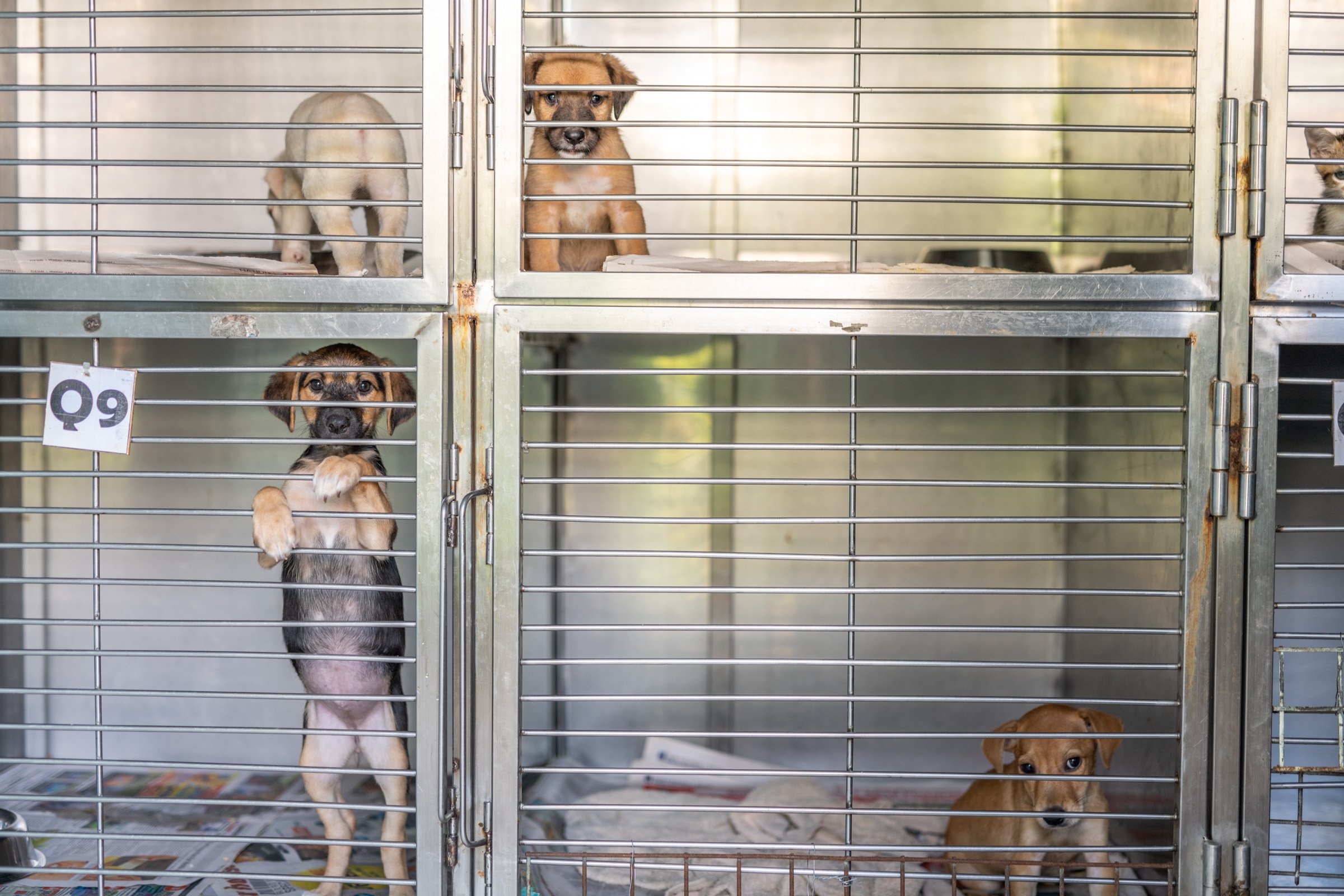
Accidents happen despite our best efforts. Practice Prevention should become second nature – for you, your family and your animals.
First Aid is those things you can do to lessen the bad things which can happen as a result of illness or injury. They do not substitute for veterinary medical help but can be a life-saving first step. Following are some of the more common emergencies you might experience with your dogs and what first aid to provide until you can get veterinary attention.
-

Hit or Run over by a vehicle
Even if the dog or cat is walking around, keep them confined to a small safe space until you know for sure they are OK either by watching them closely over the next 24-48 hours, or after a veterinary check.
If they are unable to rise and walk, then use your Stretcher to transfer and move the dog to safety. Dogs in pain often bite at the first object in front of them so gently but quickly place a blanket over its face before trying to touch it. Slide it onto the stretcher to try avoid a lot of movement.
Place it in a quiet, warm, dry and safe spot. Offer only water for the first 6-8 hours. Arrange a veterinary visit as soon as possible. [Injured cats can be gently wrapped in a blanket for transport but avoid too much motion to reduce pain].
-

Bleeding and deep wounds (such as cane knife)
If bleeding, apply pressure. A clean, dry hand towel is a good first-aid bandage for deep wounds. Place it directly over the wound, then wrap a bandage snugly around this site.
This can stay for several hours or even overnight until veterinary care is available. If it is not bleeding, use a T-shirt or shorts to cover the wound and keep it as clean as possible.
-

Allergic Reactions
anti-histamines are available at local pharmacies and are important medicines to have on hand in case your dog has an allergic reaction.
These are seen as sudden facial swelling, sudden excess itchiness, general flush or redness to the skin, or raised swollen patches of skin. Ask your vet beforehand what types and doses your dog /cat would require.
-

Suspected Poisoning
If you know what they ate and it was less than 4 hours ago, you can give hydrogen peroxide to make them vomit – if more than 4 hours ago, then using charcoal slurry can help bind the toxin/poison and reduce its effect.
Toxins to the skin, such as insecticides, need a complete, thorough bath and rinsing as soon as possible.
IMPORTANT
Do not give Panadol or Paracetamol to any animal.
Milk and coconut water are not treatments but can, at times, be useful – in much the same way as rinsing a wound with salt water helps to clean it.
All poisons are not alike – if you think your dog or cat was poisoned, check to see what it had access to. Have the information ready for when you call the vet.
Do not try to use medicines meant for dogs or cats or vice versa.
Be Prepared! What to pack in a Pet First-Aid Kit
Emergencies can strike at any time, whether you are safely at home or driving to work. A vet may not always be available, so a first aid kit can come in useful. Here is a list of items to keep on hand at all times. We suggest keeping one set in your car and one at home.
Your nearest vet phone number (SPCA is 9980023 or 3301266. After-hours emergency number is 9922634).
Tarp or heavy blanket (to use as a stretcher)
Blanket or towel (to cover the injured animal).
Waterproof sheet or tarpaulin (for cover from the elements).
Hand towels (for applying pressure to bleeding wound)
Pads of clean cloth or gauze (for placing over cleaned wounds)
Rolled bandage material or long strips of cloth (for keeping wound pads in place)
Honey or antibiotic ointment (for small wounds)
A saline (saltwater) solution (for washing out wounds)
Clean water (bottled water or boiled cooled water)
Hydrogen peroxide (small amounts to trigger vomiting)
Milk of Magnesia or charcoal slurry (to absorb poisons or toxins)
Antihistamine for allergic reactions
Pet First Aid booklet to give detailed instructions on when and how to use these items.
Other items you should have ready for any disaster include:
leash and secure carrier or box for smaller animals and cats;
food and water (enough for one week at least);
waterproof plastic sheet;
food and water bowls;
your pet's medications;
liquid soap or shampoo.
Don't leave it to the last minute! Make your preparations now.
